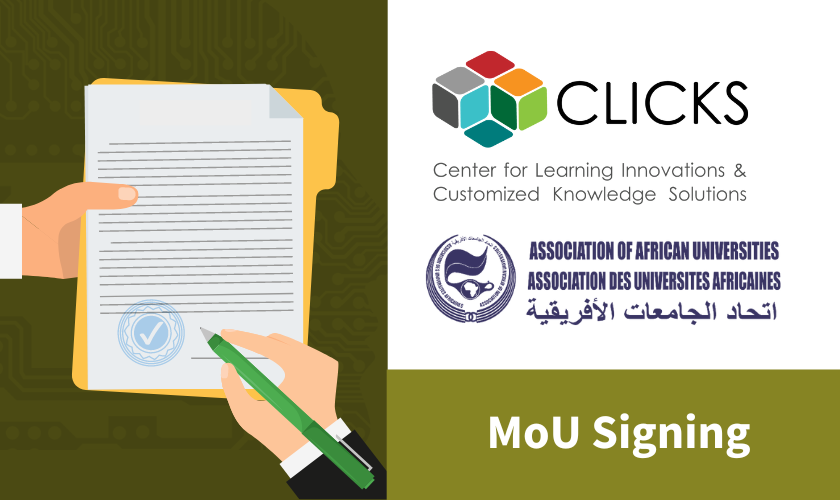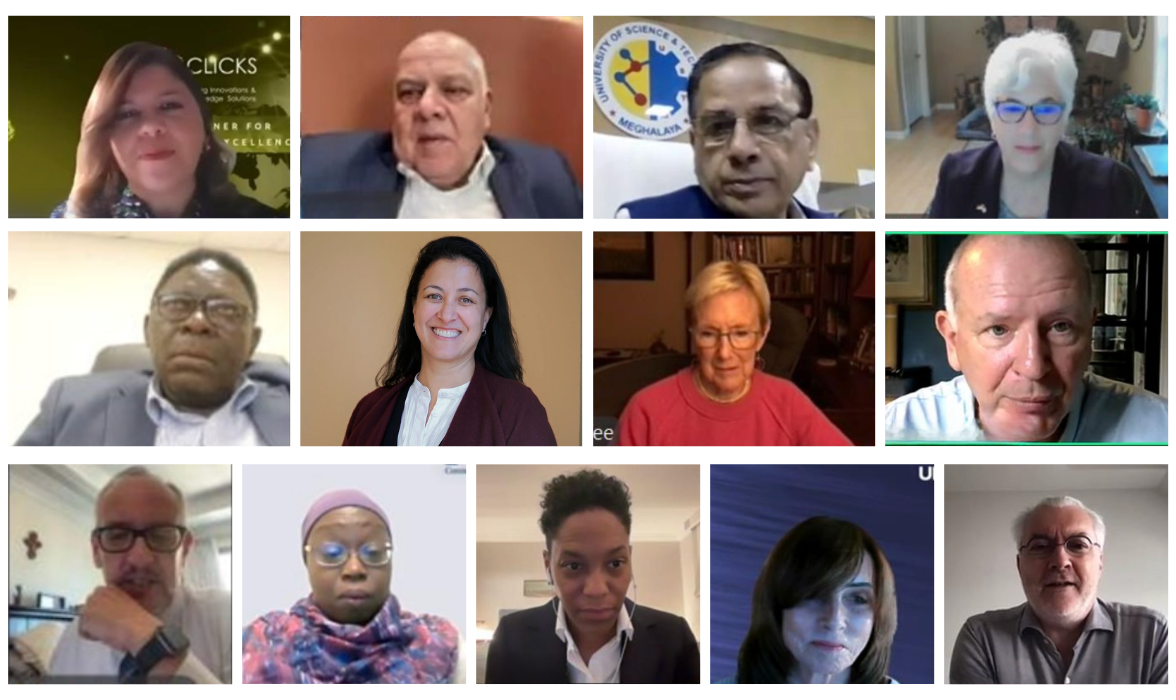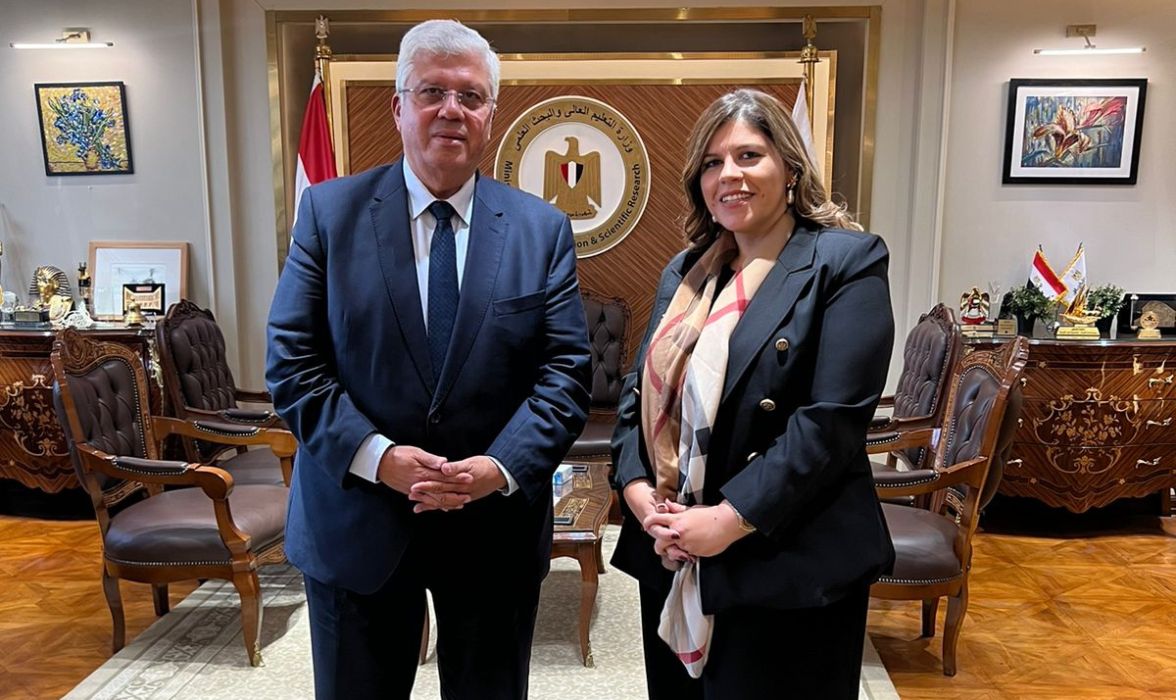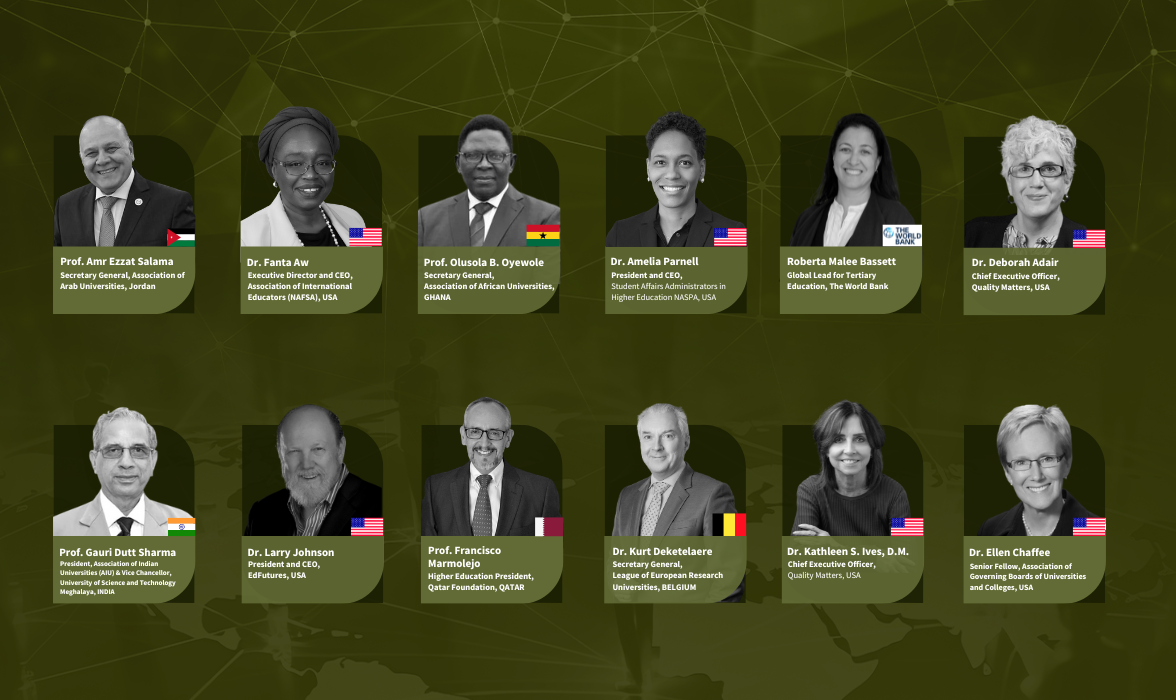As part of its agenda to expand into new geographies and support capacity building in the Higher Education across its various areas of expertise, the Center for Learning Innovations and Customized Knowledge Solutions(CLICKS) has recently signed a Memorandum of Understanding with the Association of African Universities (AAU), a higher education network of over four hundred universities established in 1967 and aiming at advancing higher education and strengthening their human and institutional capacities to respond to societal needs. Over the years played a critical role in networking universities and building capacity to help the African higher education sector.
As part of the MoU, the two parties will mutually collaborate to promote capacity building for the Higher Education sector in Africa in areas of mutual interest and primarily related to quality assurance, leadership development and governance. Among the objectives of the set collaboration is to:
1. Promote knowledge sharing among various institutions and countries in Africa.
2. Organize joint workshops to support capacity building in the higher education sector in Africa.
3. Joint development and certification of programs in any of the seven thematic areas the two parties agreed upon
4. Support conferences and other events organized by each party.
The two parties are currently planning a range of programs that will take place in Dubai and other African countries based on a consultative process with member institutions from he AAU and which will start early 2023.
The MoU was signed by Prof. Olusola Oyewole, the Secretary General of the Association of African Universities (AAU) and Dr. Narimane Hadj-Hamou, Founder and CEO of CLICKS.
Within the context of this new collaboration, the representative form the partnership office, Mr. Ransford Bekoe said: “Capacity building in higher education is central to the programs and activities of the Association of African Universities (AAU) since its establishment in November 1967. The AAU continues to build capacity of its member universities in leadership and management skills development, resource mobilization, quality assurance, pedagogical training, financial management, university advancement and many other disciplines. The need to enhance capacity in Africa has become more pronounced post-COVID-19, as the pandemic exposed the unpreparedness of Africa’s higher education in adapting to disruptive technology.
Given the AAU’s huge membership size of over 400 universities, the need has arisen for the Association to fast-track its training programs across the geographic and linguistic divides of the continent. This calls for more collaboration with sister training organizations and the AAU sees in CLICKS a worthy partner in building a solid African higher education community well prepared to surmount the challenges of the 21st century. “
Dr. Hadj-Hamou, Founder and CEO of CLICKS further shared “we are delighted to join forces with the AAU to promote capacity building in areas which are core to the success and sustainability of higher education institutions today. We look forward to jointly planning a rich portfolio of activities that will respond to the pressing needs of universities that are members of the AAU and beyond.“
About AAU

The AAU is Africa’s apex higher education organization of over four hundred universities and a critical lynchpin organization that brings coherence to the development of African universities. The Association collaborates with institutions with whom they share common objectives in advancing higher education and strengthening their human and institutional capacities to respond to societal needs.
The AAU’s niche is in its networking and enjoys a unique capacity for convening most of the higher education community in Africa to reflect and consult on key issues affecting education on the continent. The thrust of its base is the nimble deploying of advocacy, commissioning of studies, and acting and becoming the clearing house and intelligence arm for these higher education institutions on the continent.







